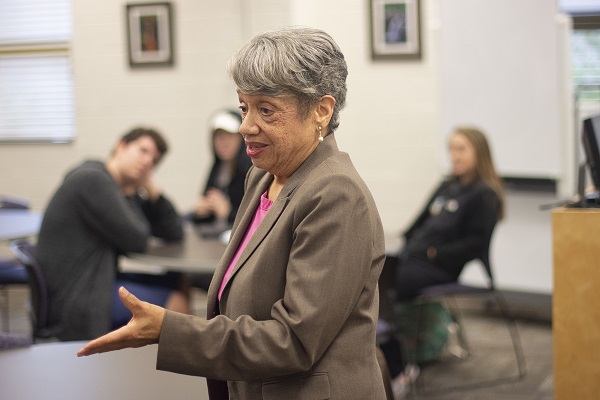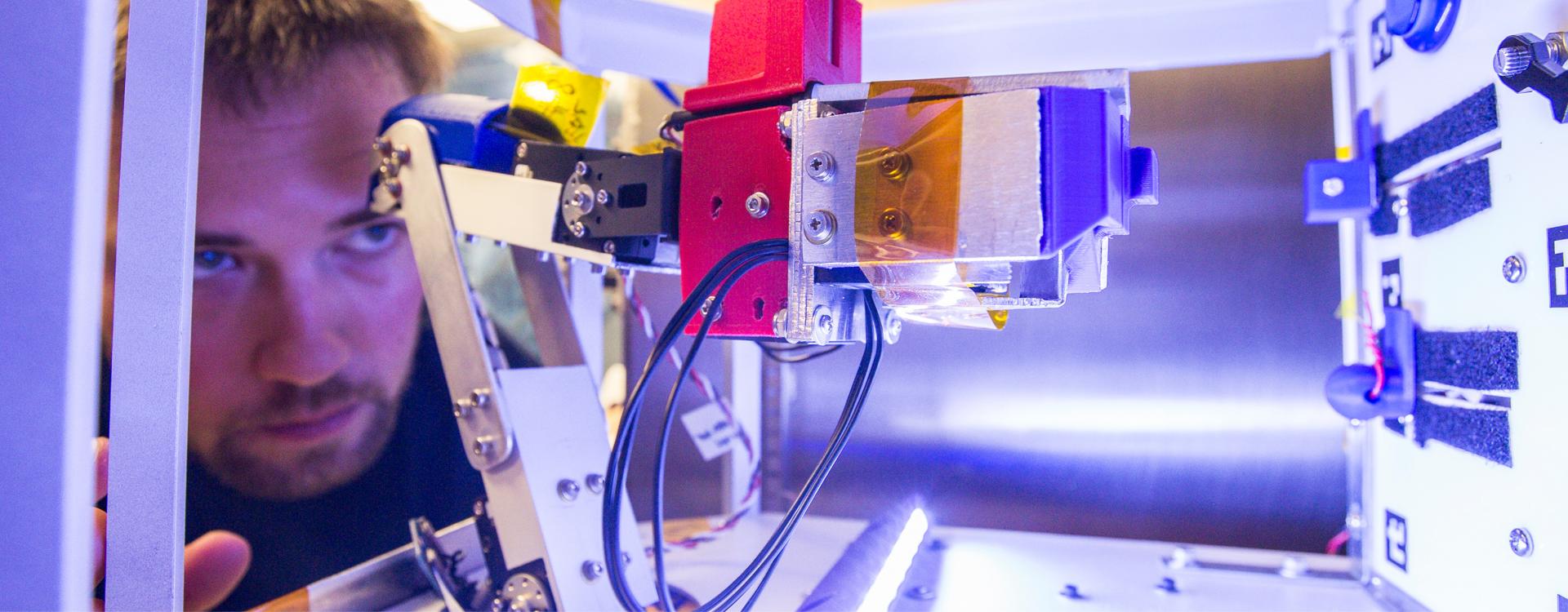NASA 'Hidden Figure' discusses life, work during Durham Tech seminar
 North Carolina native Dr. Christine Darden dedicated 40 years to NASA, and on Wednesday, Nov. 14, Durham Tech students, faculty, and staff were given an insight into her life and work at NASA.
North Carolina native Dr. Christine Darden dedicated 40 years to NASA, and on Wednesday, Nov. 14, Durham Tech students, faculty, and staff were given an insight into her life and work at NASA.
Darden is a retired mathematician, data analyst, and aeronautical engineer who was featured in the hit book, “Hidden Figures: The American Dream and the Untold Story of the Black Women Mathematicians Who Helped Win the Space Race.” The book, written by Margot Lee Shetterly, focused on four African-American women who worked at the Langley Memorial Aeronautical Laboratory in Hampton, Va., to help America lead in aeronautics, space research, and computer technology. Langley Memorial Aeronautical Laboratory is now Langley Research Center.
Darden’s presentation was titled “Dreaming and On Their Shoulders.” It was part of the College’s Science Seminar series.
During her presentation, she recounted moments from her life and time at NASA and discussed her research on supersonic flight and sonic booms. Students, faculty, staff, and community members, including middle school students, packed the auditorium in the Harold K. Collins Building on Main Campus to hear her speak.
“Having things like this for students is powerful,” Darden said after her presentation. “We don’t always know how events like this impact our audience, but I think very often it does have a positive impact on them.”
Darden stated upfront that she wasn’t one of the women featured in the movie version of “Hidden Figures.” She was in college during the movie’s time frame, when NASA was trying to launch American astronaut John Glenn into orbit.
“I watched John Glenn’s parade in Hampton when he came back from orbit,” Darden said.
However, Darden accredited the work of Dorothy Vaughan, Mary Jackson, and Katherine Johnson, who were featured in both the book and movie, for paving her way into NASA.
“In 1967 when I was looking for a job, NASA will still hiring (human) computers because they had done a great job,” Darden said. “I was sort of standing on their reputation to be hired into NASA.”
“Human computers” referred to women who used tools like pencils and slide rules to crunch numbers and write complex programs.
The addition of human computers allowed for women’s entry into the workforce at Langley, according to Darden. Women began working for Langley in the 1930s.
An executive order issued by President Franklin D. Roosevelt in the 1940s widened the entryway to allow for African-American women to be hired.
Three weeks after Darden applied to work at NASA, she was hired. It was two years before Neil Armstrong walked on the moon.
After working in the pool for several years, Darden approached her supervisor to ask why men of the same educational background as her were being hired as engineers. Taking that step led Darden to become one of the center’s only female aerospace engineers.
“When you think you are going to have to take a risk, you weigh the pros and cons of that and decide whether it is worth stepping up there to do, but often you won’t get anywhere if you don’t step out and do some things,” Darden said.
Among her first tasks was to create a computer program for sonic boom. She is now considered one of the world’s experts on sonic boom prediction, sonic boom minimization, and supersonic wing design, according to NASA’s website.
“Hearing Dr. Darden speak about the challenges that she has overcome through her planning, intelligence, and bravery was inspirational,” said Julie Hoover, a geology instructor at Durham Tech. “Women in STEM still have to pick their battles, even in 2018, so I particularly appreciated the advice she gave the students to be persistent and take risks when trying to reach their goals.”
Hoover herself has had some run-ins with NASA as she is the faculty sponsor of NASA Swarmathon and The Unacceptable Risks GOAT/RAM High Altitude Student Payload teams, both of whom compete in NASA-connected competitions and projects.
The Science Seminar Series has occurred for 19 years. Darden, who is based in Virginia, is one of the only out-of-state speakers to be invited, according to Dr. Steve Leadon, who co-hosts the series with Dr. Kathy Zarilla. Leadon is the interim chair of the science program and a biology instructor, while Zarilla serves as the undergraduate research/project-based learning, student learning, and instructional services coordinator and teaches biology and microbiology.
Naomi Feaste, a Durham Tech instructor in the high school equivalency programs, is the one who recommended Darden to Leadon. Feaste attended the same high school as Darden and heard Darden speak at a high school reunion Feaste attended, according to Darden.
Before Darden’s seminar at 3:30 p.m., she spent more than an hour answering questions from a room full of students in the Teaching-Learning Center.
“I was pleased to be invited here,” Darden said after her seminar. “I have found it very invigorating myself to meet a lot of different people and hear their questions and talk to them about what I did. … It has been a great day for me. I’ve enjoyed it, and I hope it has some meaning here.”
In the News:
- WUNC's "State of Things": Featured on Nov. 13
- Triangle Tribune: Featured on Nov. 15

